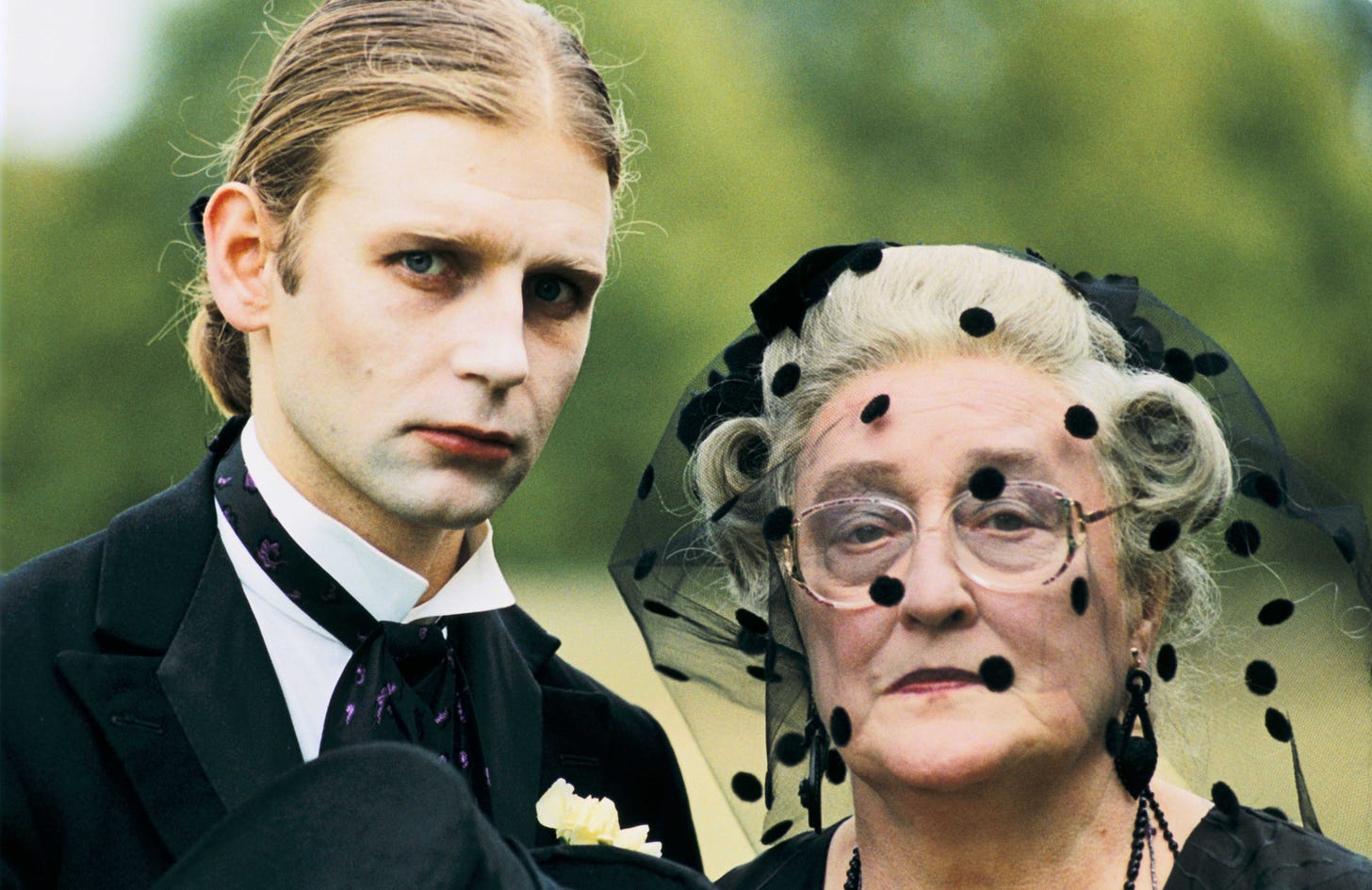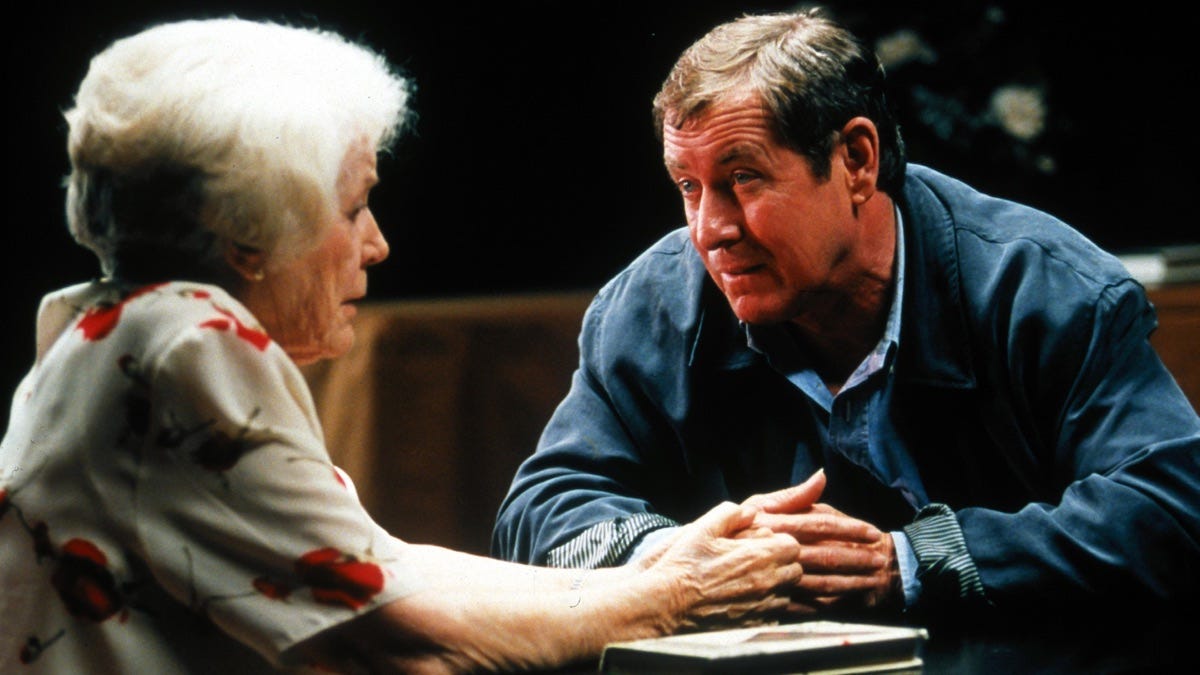Did you have COVID? If you did, did you have trouble with your brain afterwards? For me, after COVID, making mental connections was like walking through a swamp — my brain moved too slowly and struggled to get anywhere. Moreover, spelling and word choice were way off, and caused a few embarrassing incidents. This was all terrifying. With the march of time, I have seen my overall capacity taper back, but nothing like the brain-swamp and diminished verbal capacity that happened after COVID.
All of these jeopardized a lot of things, including some aside from the obvious. And to get my brain back, a non-obvious solution presented itself in the form of British murder mysteries.
When I say that “I used British murder mysteries” to get my brain back, would you think I tried to solve the crimes in the show, improving my logic skills and expanding my knowledge in the deployment of red herrings? You would be wrong. (Also, when I try to solve the crimes, I’m always wrong.)
Instead of trying to outsmart the show, I used a less obvious exercise to get my brain back — there is a game I have played by myself nearly my whole life, and it’s kind of like “six-degrees of Kevin Bacon,” except it’s just me identifying actors and recalling what I’ve seen them in before. It’s not about famous people, but rather journeyman performers in smaller roles. I don’t know why I do this. I mean, it’s not a competition and I don’t go into a show looking to do it, but if I happen to recognize someone, I will happily announce my findings to anyone around, probably to their deep annoyance.
However, after COVID, I struggled to play this game. I wasn’t “face blind” — I knew I had seen the actor or actress before, I just couldn’t place where. The connections just would not come. I couldn’t recall easily. My memory was displaced. My words were gone… I struggled. This diminished capacity also implied that if I couldn’t make these connections with such a low-stakes game, I wouldn’t be able to make them when it mattered. This made me sad and not a little scared. I’d heard about similar things happening to people after COVID, and it’s one reason why I had been so careful during the pandemic.
After dodging it for years, I had finally contracted COVID when traveling for Thanksgiving last November. As a result, I missed a lot of Christmasy things, including festivities for my early-December birthday on a landmark year. Dissolving in misery in my isolated bedroom, I turned to my personal chicken-soup-for-the-soul, British TV mysteries. An odd thing about pandemic-times, I didn’t really watch TV or movies aside from those with my family; I got all caught up on Marvel and Star Wars stuff, but not much more. I’m not even sure when I last watched any British mysteries, but I knew that Amazon had a collection of them where other streamers did not.
I found a series that I’d heard about, but never got a chance to watch: the gold-standard of pulpy British murder-mysteries, Midsomer Murders. I continued to watch it after I got better, and I credit MM for helping me get my actor-connection mojo back, and my brain. An ITV production that also plays on PBS MASTERPIECE Mystery!, Midsomer Murders is set in the fictional county of Midsomer in England, originally starring John Nettles as Detective Chief Inspector (DCI) Tom Barnaby. County Midsomer is apparently quite a hotbed for uniquely British ways to be murdered, including those that take place during cricket matches, regattas, and at old manor houses (which may or may not come with a supposed ghost). MM is also notable because the detectives do not carry firearms, thus making tripping suspects to apprehend them delightful and entirely plausible.
First airing in 1997, Midsomer Murders has been on for so long that certain actors and actresses come back to play entirely new roles in later episodes, making the show feel more like an ensemble production than many other comparable long-running series in the U.S. This is likely because the acting world in the UK is pretty small, all things considered, and due to the quality and longevity of the show, some great character actors have the opportunity to show their range, as a result.
With a swagger rarely seen in American TV, Midsomer Murders even revels in their use and re-use of actors. In perhaps the first episode to reuse actors for different roles (“Dead Letters,” S9:E2), DCI Barnaby goes a-vestigatin’ and comes across a nosey mother Ursula Goodling and creepy adult son Alistair, (played by Elizabeth Spriggs and Richard Cant) who are “dead-ringers” for another nosey mother and creepy son pair — Iris and Dennis Rainbird — who were murdered in S1:E1, “The Killings at Badger’s Drift.” Barnaby fears he’s losing his mind, and very Britishly asks Ursula Gooding about it. “Yes, yes. My sister and her son,” says Ursula, “dreadful business.” But she assures Barnaby that they (Ursula and Alistair) had nothing to do with this current murder. And the episode goes on without another word about it. After this episode, other previously-seen actors begin to reappear without a similar acknowledgement.

Once I recognized that the same people reappeared later as different characters, I began to test myself on what episode I’d seen the actor or actress in before, as well as what role they had played. I knew my rehabilitation was working when I was at last able to recognize the cutesy animal photographer as the same actor who played the ragingly perfectionist bell-ringer master, and later a billionaire’s sculpture garden caretaker. This veteran actor’s actor, Adrian Scarborough, now appears to have his own detective series, The Chelsea Detective. He has earned it!
As you might imagine, MM has also hosted other British actors early in their careers, including Orlando Bloom, Olivia Colman, Henry Cavill, Emily Mortimer, Steven Moyer, Imelda Staunton, and Genevieve O’Reilly, known for her portrayal of Senator Mon Mothma in the Star Wars universe, most recently in Andor. For her part, Elizabeth Spriggs was also the original Fat Lady in the Harry Potter movies.

This all might be old news to people who are knee-deep in British mysteries and popular TV and movies in general, but as someone who doesn’t have a lot of time to consume these things regularly, it’s been a lovely way to get up to speed on some aspects of popular culture. And get my brain back while doing it. Luckily for me, there are many seasons of MM, and I’ve watched up to Season 21 (which are all that are available for free). It took about that long for my actor-connection spidey-sense and verbal skills to (almost) return.
After getting through what I could of Midsomer Murders, I feel like other British mysteries are remarkably hard to find without additional subscriptions. My newly rediscovered passion has hit a paywall. If I get COVID again, I’ll probably need to break down and get ACORN TV.




